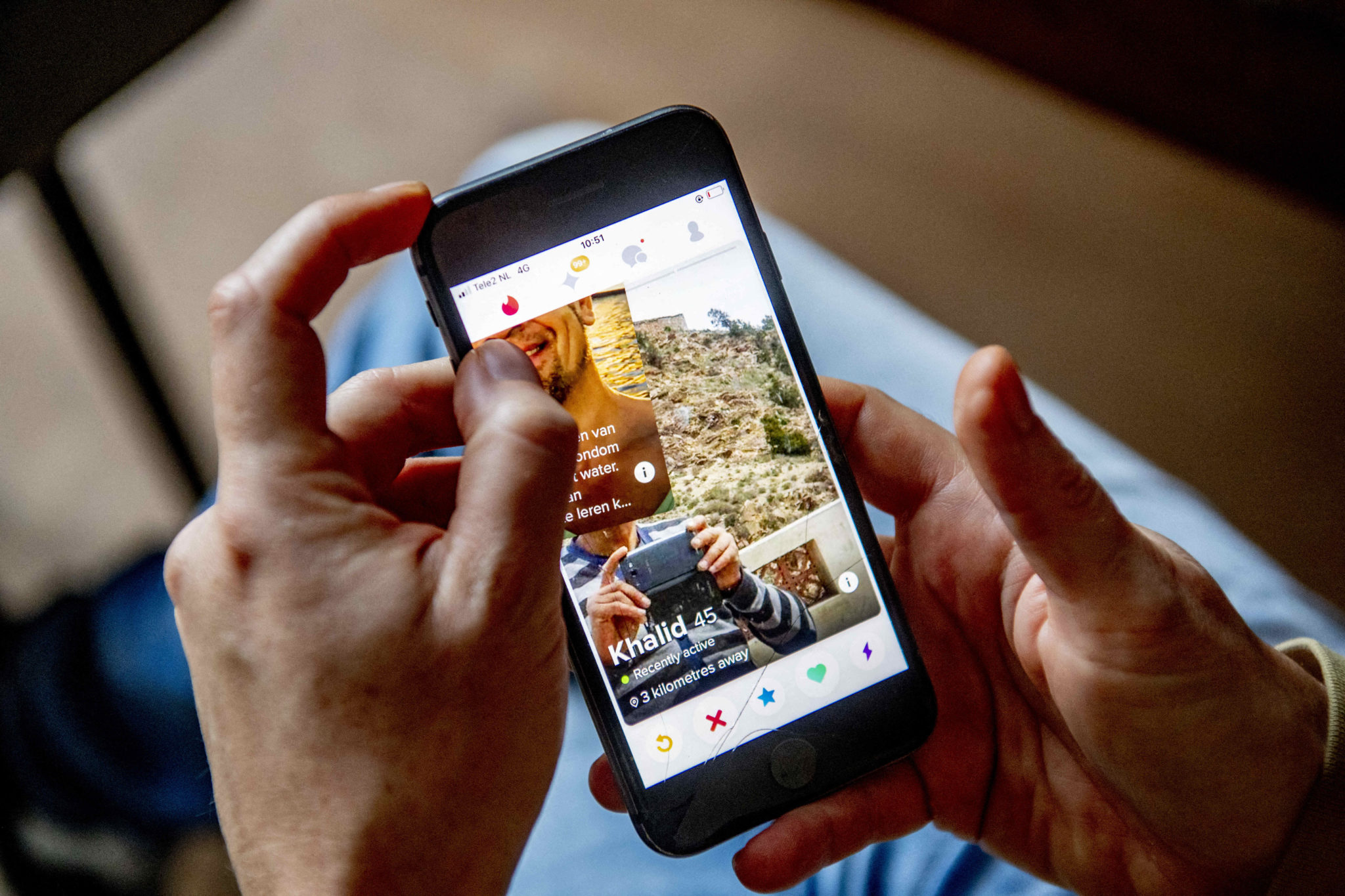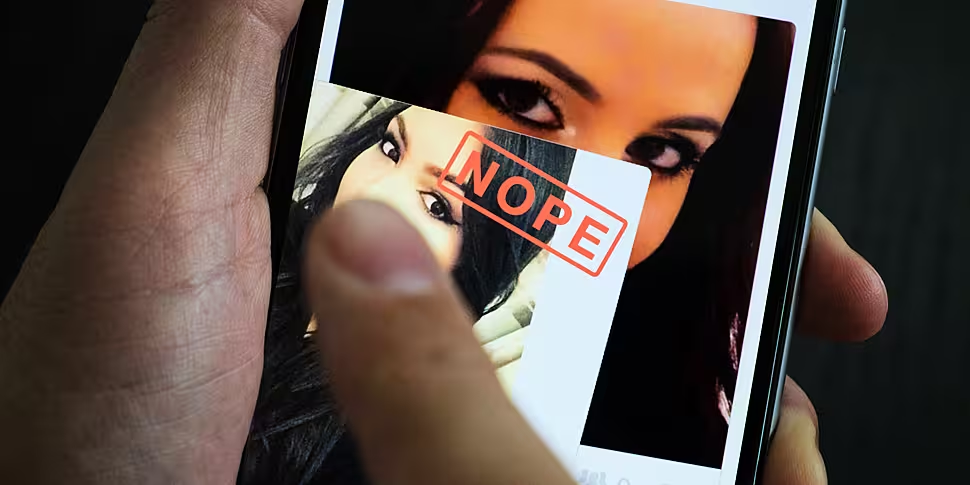Two-thirds of people on Tinder are either married or already in a relationship, a new study has found.
The study also found that just half the app’s users are interested in actually meeting up with people offline.
Published in the journal Cyberpsychology, Behaviour and Social Networking, the study spoke to nearly 1,400 current Tinder users aged 18 -74 about their reasons for using the app.
Researchers also asked them about the number of matches and dates they have had and about their self-esteem and loneliness.
 Illustration of Happen and Tinder online dating app, 10-11-2020. Image: Utrecht Robin/ABACA/ABACA/PA Images
Illustration of Happen and Tinder online dating app, 10-11-2020. Image: Utrecht Robin/ABACA/ABACA/PA ImagesThe study found that 65.3% of app users were married or “in a relationship,” and only 50.3% of app users were using it to meet someone offline.
It suggests that many people stay active on the app even when they are not looking for love for the same reasons they use social media
It finds that dating apps have become sources of entertainment and social connection for some people – offering a confidence boost when they can gather likes and matches.
"Game of deception"
Study co-author Prof Germano Vera Cruz said using the app in this manner harms people who are actually hoping to find love or intimacy.
She described it as a “game of deception”.
“Some people feel deceived with the use of dating apps, because each time you have a new platform, people think they might really find someone,” she said.
“And then people go from platform to platform, but each time they are there, they are not satisfied.”
Entertainment
The study found that people who are using the app to cope with negative emotions or personal difficulties are most likely to be dissatisfied with it.
The authors said this highlights the need for these users to address underlying problems or pathologies that may be driving their use.
Co-author Dr Elias Aboujaoude said many of his patients have told him they are dropping dating apps after years of trying them out.
“There was the sense that they were spending too much time using them as entertainment or to distract themselves from other things,” he said.
“It can be overwhelming, and in some cases, it can lead people to this notion that the grass is always greener on the other side – like there are always better options out there.”
The study noted that satisfaction with the apps and resultant dates is strongly linked to people’s age and their reasons for using the app from finding “true love” or casual sexual partners to enhancement, emotional coping and socialisation.
A spokesperson for Tinder said 40% of its users around the world are looking for a long-term relationship with 13% looking for a short-term connection.
They said the app’s ‘Relationship Goals’ feature lets people signal their intent when using swiping.
Additional reporting from IRN









